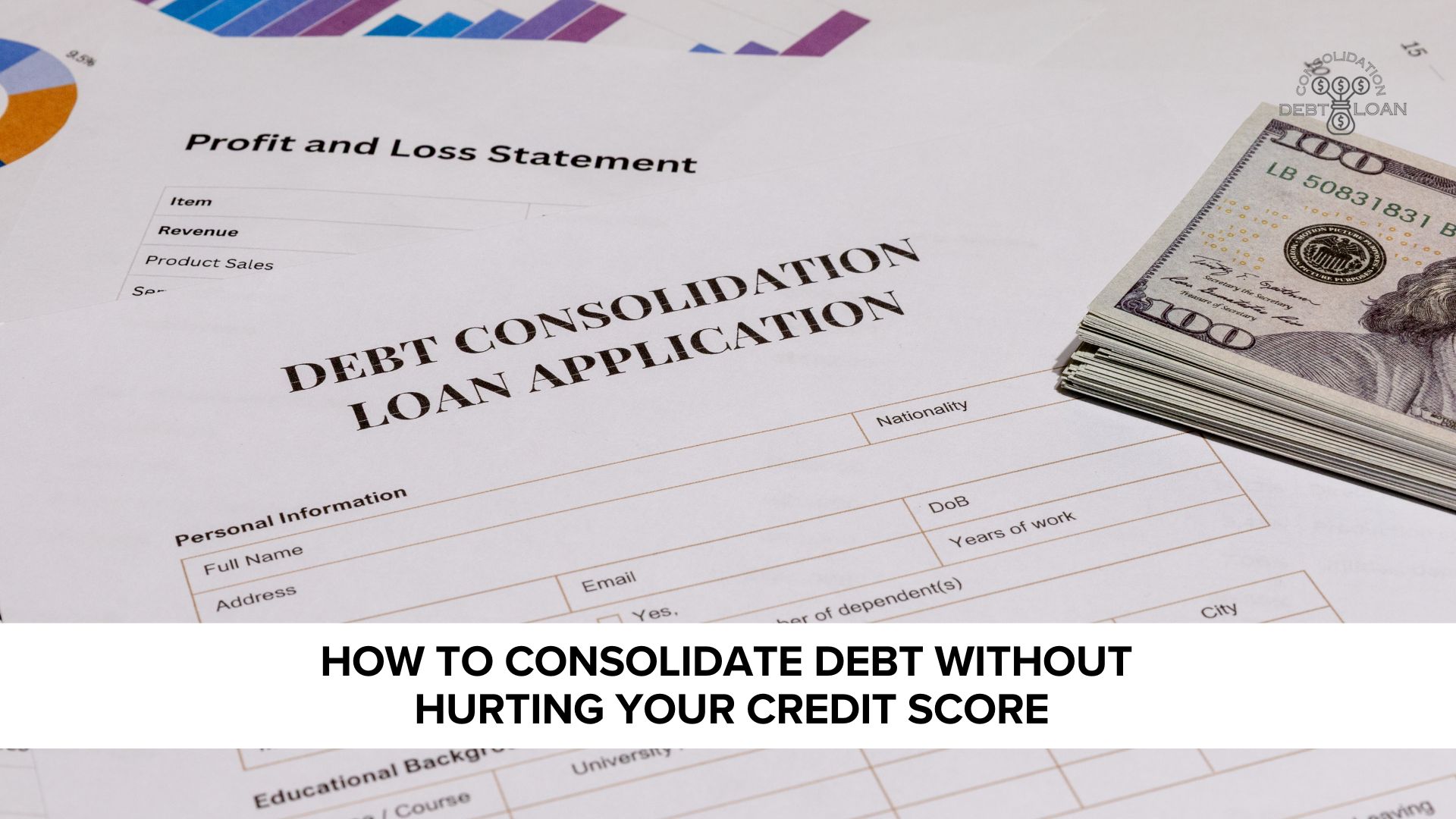
Consolidating debt can be a smart move, but many people worry about its impact on their credit score. When done carefully, debt consolidation can help your credit in the long term. The key is to understand how lenders assess your credit and make choices that protect it. With the right strategy, you can simplify your debts and build a stronger financial profile at the same time. Here’s how to manage the process without damaging your score.
Why Does Debt Consolidation Affect Your Credit Score?
Debt consolidation affects your credit score because it involves taking out a new loan or credit account. This process triggers a hard credit check, which can temporarily lower your score by a few points. However, consistent repayments and reduced credit utilisation quickly help recover and improve your rating. The key is to use consolidation to manage your debts more efficiently, not to borrow more. When handled responsibly, consolidation can strengthen your credit history over time.
What Type of Debt Consolidation Loan Should You Choose?
The type of debt consolidation loan you choose can influence your credit outcome. Unsecured loans rely on your credit score and income, while secured loans use collateral such as property or a vehicle. Unsecured loans may have higher interest rates, but they don’t put your assets at risk. Choose a loan with terms that fit your budget and repayment ability to avoid missed payments. Selecting the right option ensures stability and helps your credit recover faster.
How Can You Consolidate Debt Without Lowering Your Score?
You can consolidate debt without lowering your credit score by following simple but strategic steps. Start by checking your credit report for errors and paying off small balances before applying for a new loan. Apply for only one debt consolidation loan at a time to avoid multiple hard credit checks. After approval, avoid closing old accounts immediately, as this helps maintain your credit utilisation ratio. Responsible management during this stage ensures your score remains steady or even improves.
Should You Close Old Credit Accounts After Consolidating?
It’s usually better not to close your old credit accounts right after consolidating. Keeping them open helps maintain a longer credit history and a healthier credit utilisation ratio, both of which support your score. You can stop using the accounts while still benefiting from their positive age on your record. Closing them too soon may shorten your credit history and increase utilisation if balances remain. Managing them carefully instead of cancelling them outright keeps your score stable.
How Can On-Time Payments Help Your Credit Recover?
Making on-time payments is one of the most effective ways to protect your credit score after consolidation. Payment history makes up a large part of your credit rating, so consistent repayments build reliability. Set up automatic payments or reminders to ensure you never miss a due date. Each timely payment adds a positive mark to your report, helping your score grow steadily. Over time, this shows lenders you can manage credit responsibly.
What Common Mistakes Should You Avoid During Debt Consolidation?
Avoiding common mistakes can prevent unnecessary harm to your credit score. Don’t apply for multiple loans at once, as multiple hard inquiries can lower your credit score. Steer clear of taking on new credit while consolidating, since this increases your overall debt load. Make sure your new loan term is realistic so you can maintain regular payments. Staying disciplined during the process protects both your financial progress and your credit record.
Can Debt Consolidation Actually Improve Your Credit Score?
Yes, debt consolidation can improve your credit score when managed correctly. By combining debts into a single loan, you simplify repayment and reduce the risk of missed payments. Paying down your total debt lowers your credit utilisation ratio, which boosts your score over time. It also helps demonstrate financial responsibility to future lenders. When done with discipline, consolidation becomes a valuable tool for long-term credit improvement.
How Can You Monitor Your Credit During and After Consolidation?
Regularly monitoring your credit score helps you track progress and spot issues early. Use free credit monitoring tools from agencies like Experian, Equifax, or TransUnion to view changes monthly. If you notice unexpected drops, review your report for inaccuracies or outdated data. Keeping an eye on your score ensures your consolidation plan is working as intended. Regular monitoring also motivates you to maintain good financial habits.
Should You Seek Professional Guidance Before Consolidating?
Seeking professional guidance can help you consolidate debt safely without risking your credit. A certified financial advisor or debt specialist can assess your situation and recommend the best options. They can explain how different loans affect your credit and help you compare lenders. Their support ensures you choose a solution that suits your income and goals. Professional advice gives you confidence and clarity before making any major financial commitment.
Build a Stronger Credit Score Through Smart Debt Consolidation
Consolidating debt doesn’t have to harm your credit score if you approach it with care and strategy. By choosing the right loan, managing your accounts, and making every payment on time, you can maintain and even boost your score. Avoiding unnecessary applications and monitoring your credit are also key to long-term success. The process is about balance, simplifying debt without creating new risks. With the right guidance and discipline, debt consolidation can set you on the path to a stronger, healthier financial future.
